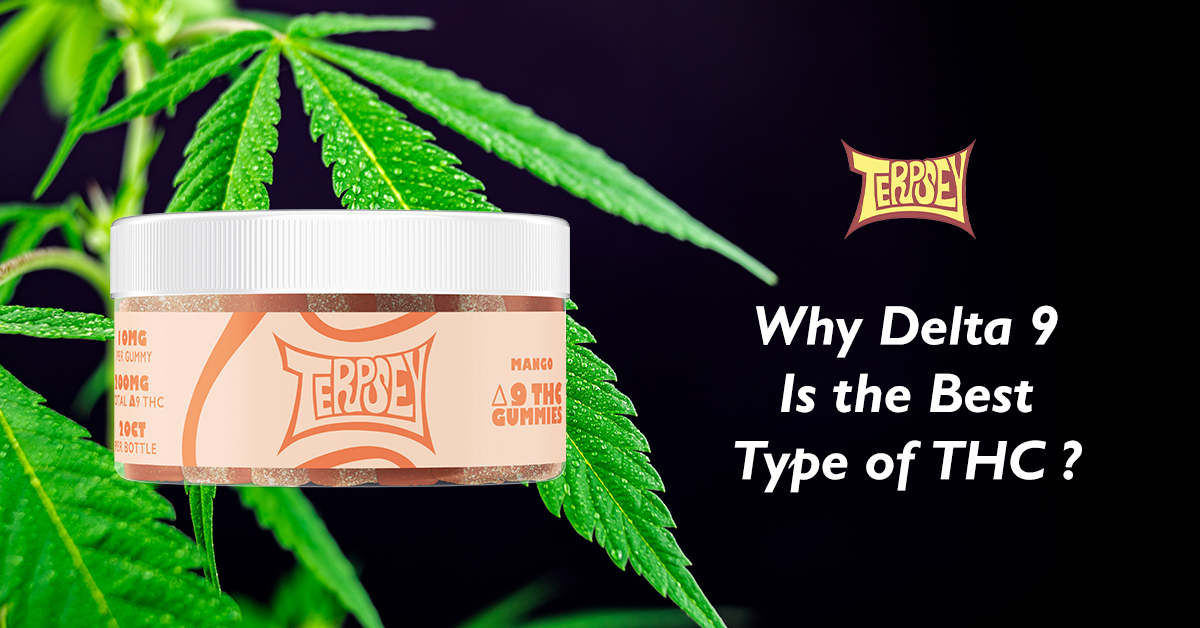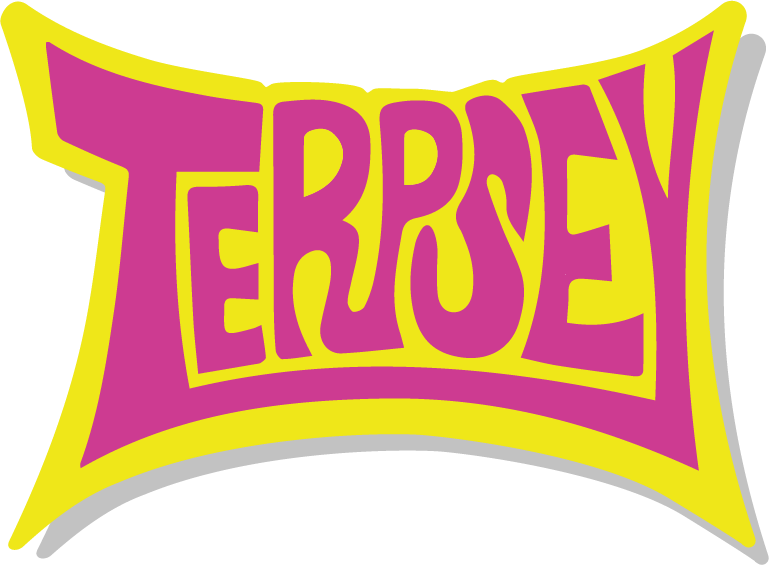
Why Delta 9 is the Best Type of THC?
Table of Contents
Cannabis markets offer a wide variety of delta-9-tetrahydrocannabinol (delta-9 THC) products obtained from hemp. Delta-9 THC naturally comes from the Cannabis Sativa plant, which naturally yields more than 100 active cannabinoids. Research shows that our bodies require cannabis constituents like cannabinoids to keep us healthy and content. Cannabinoids interact with the human endocannabinoid system (ECS) and help overcome systemic deficiencies. THC is one of the most well-known cannabinoids known for medicinal benefits. It is a potent chemical found in various cannabis species across the world.
The cannabis plant has four primary forms of THC- THCA, THCV, Delta-8 THC, and Delta-9 THC. Though these THC variants offer the high associated with ingesting marijuana goods, each has unique properties and medical benefits. Comparatively, hemp-derived delta-9 THC is the best one. It has been around for centuries among ancient cultures. People used it for rituals, medicine, rope, fiber, and other reasons. Let us know how it is different from other types of THC.
Distinction in Delta 9 THC vs Other Types of THC
Under this heading explore the difference between Delta 9 THC and other types.
Delta-9 THC vs. THCA
The cannabis plant contains THCA (tetrahydrocannabinolic acid) in its stems, leaves, and flowers. Upon heating its raw form, it undergoes decarboxylation and turns into THC. There are numerous methods for this to occur, including:
- Exposure to sunlight
- Exposure to Room Temperature
- Heat exposure via smoking, vaping, concentrates, or oven decarboxylation
Small amounts of THCA convert into their counterparts by sunlight and natural aging. Heating in other ways (decarboxylation) may also accelerate the process. It is the only form of THC that does not have psychoactive or mind-altering qualities.
This non-psychotropic cannabinoid does not bind to CB1 or CB2 receptors in the ECS. Though its chemical structure does not match these receptors, when mixed with other acid versions of cannabis, it may inhibit COX-1 and COX-2 enzymes.
As a result, THCA can help treat pain and inflammation-related medical conditions. A 2017 study shows that THCA is a potent acid that can help with neurodegenerative and inflammatory diseases.
On the other hand, THC is a more potent substance that connects to CB1 receptors in the brain and nervous system. The carboxyl group in THCA distinguishes the two cannabinoids from one another. When exposed to heat sources, the THCA molecule changes its chemical composition and shape, making it compatible with receptor sites. While THCA is only available in topicals, tinctures, capsules, and raw cannabis juice, THC comes in all cannabis delivery forms.
Delta 9 THC vs. THCV
The breakdown of THCA leads to the formation of THCV (tetrahydrocannabivarin). There is a contrasting difference between THCV and delta-9 THC. The absence of psychotropic effects makes THCV a superior option. Low doses do not have any mind-altering effects, but high doses or the use of a strain high in THCV could make you high.
Though the impacts of THCV do not persist as long as those of THC, you may experience them more quickly. Due to the high boiling point (428°F as opposed to 314°F), those who wish to vape it must amplify their devices to enjoy it to the fullest extent.
But if you want to incorporate it in edibles, you may not get the THCV effects entirely without sacrificing cannabinoids like delta-9 THC. It is because other compounds tend to degrade at high temperatures.
Another notable distinction between THCV and its psychoactive cousin is that it acts as an appetite suppressor rather than making you hungry. It can even decrease the effects of Delta-9 THC, including intoxication or dependency.
Scientists found that a cannabis strain with high levels of THCV and CBD will be more effective at aiding weight loss than one with equivalent levels provided by THCV and Delta-9THC. Aside from suppressing appetite, THCV can help reduce inflammatory pain. A preliminary study shows that it has medicinal potential as an anti-inflammatory and neuroprotective.
Overall, THCV can help patients with the following ailments:
- Osteoporosis
- Epilepsy
- Anxiety
- Cancer
- Multiple sclerosis
- Convulsions
- Glaucoma
- Migraine
- Parkinson’s disease
- Alzheimer’s disease
Delta 9 THC vs. Delta-8 THC
Delta-8 is a delta-9 THC analog having an identical molecular structure and affinity for cannabinoid receptors. Both delta-8 THC and delta-9 THC have the same set of elements (carbon, hydrogen, and oxygen); the difference lies in their atomic arrangements.
As Delta-9 THC oxidizes and matures, it transforms into Delta-8 THC. This transformation process boosts the stability and productivity of the resulting cannabinoid. While delta-8 THC is less potent than other THC variants, it could cause a high.
Compared to delta-9 THC, the euphoric high is less intense, but it may make you feel more energized and clear-headed. Using CBD in conjunction with Delta-8 THC could even reduce the mind-altering effects.
Since the hemp plant has Delta 8 in moderate amounts, experts can produce it artificially in laboratories. The technique involves the chemical conversion of CBD or Delta-9 THC through the isomerization process.
While delta-8 is a naturally occurring substance, it is now more commonly produced synthetically. This minor cannabinoid offers many health and wellness benefits. While scientific research on it is less, anecdotal evidence and a few preclinical studies suggest that it can help treat the following conditions:
- Vomiting and nausea
- Bipolar disorder
- Anxiety and stress
- Glaucoma
- Insomnia
- Alzheimer’s disease
- Chronic pain
Why is delta 9 THC highly preferable?
When THCA degrades due to decarboxylation, heat converts the original molecule into delta-9 THC. While THCA has no mind-altering properties, the new formation has psychoactive features. THC can bind with the cannabinoid receptors in the human body located in ECS to create the euphoric feeling, referred to as a high. However, you can keep control of its intoxicating qualities if taken in limited amounts.
More Predictable
THC is a primary psychoactive constituent, yet its effects are mostly predictable. When you consume THC-based hemp products, you will know how they will make you feel. You can anticipate a high and the slackening of self-control.
However, it depends on the strain and context. THC is not the only active ingredient in cannabis; it also contains cannabidiol (CBD), a chemical associated with calm and relaxation. Research study reveals that CBD can counteract the undesirable psychotropic effects of THC, including sedation or euphoria.
Variety Of Products
Today, delta-9 THC products are available in many forms, such as gummies, cookies, tinctures, e-juices, pre-rolled joints, and topical creams. Most of these products can treat certain medical conditions or mitigate their symptoms. FDA approved three synthetic THC formulations- Marinol (dronabinol), Cesamet (nabilone), and Syndros (dronabinol). These hemp-based drug products can help alleviate chemotherapy-induced nausea and vomiting. Nabilone is effective for increasing appetite in patients having AIDS.
Easier To Dose
Hemp-sourced THC products contain labels stating the potency and serving size of the cannabinoid. If you choose to take pre-made edibles, such as gummies, read the information provided on the package carefully. It will show the exact dosage of THC it includes (such as 5 mg per gummy). Likewise, oils and tinctures come in pipette bottles with easy-to-dose droppers. A single drop holds 0.05mL, which amounts to about 20 drops per dropper. Accordingly, you can easily calculate your THC dosage and consume them wisely for your needs.
Been around longer
According to a 2019 article, archaeologists claim that cannabis evolved on the eastern Tibetan Plateau about 28 million years ago. Though THC traces already existed, Raphael Mechoulam isolated it from the plants for the first time in 1969.
The WHO expert committee on drug dependence recommended transferring THC to Schedule IV of the Convention in 2003. Considering its medical uses and low abuse and addiction potential, the Agriculture Improvement Act of 2018 made some significant changes. The ordinance permitted the use, sale, and transport of hemp-derived products containing less than 0.3% delta-9 THC.
Medicinal benefits
THC is not a new phenomenon because it has been striving since ancient times. It derives from male and female cannabis plants, but its concentration is much higher in female plants. Some of the THC-associated health benefits include:
- Anti-inflammatory and analgesic properties
- Relieves anxiety
- Slows tumor growth
- Improves sleep quality
- Stimulates appetite
- Eases migraine headaches
- Relaxes the muscles
- Anticonvulsant or anti-seizure effects
- Reduces chemotherapy-induced nausea and vomiting
- Protects brain cells
The Bottom line
While cannabis was considered a Schedule I Controlled Substance for decades, the legalization of hemp derivatives suggests its importance. With time, scientists and other researchers learn more about the cannabis plant. The parts of the plant and their characteristics have become apparent as they explore more about it. Delta-9 THC is the most popular hemp-derived cannabidiol with enormous therapeutic properties.
If you are dubious about THC dosage, and ways to incorporate THC products into your routine, speak to a healthcare service provider. The professional will guide you through the best use of these products and help you cure your conditions most effectively.
